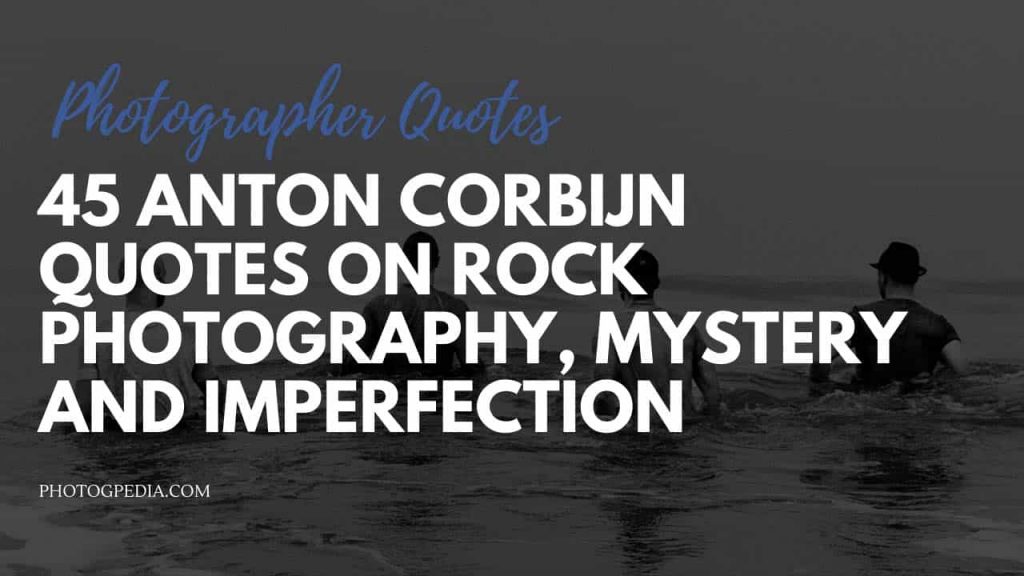Looking for the best Anton Corbijn quotes? Then you’ve come to the right place.
Anton Corbijn is a photographer, film director and music video director. Born in the Netherlands in 1955, he made his first inroads in the world of professional photography in the mid-’70s. This was thanks to his work photographing the band Herman Brood & His Wild Romance, which served the mutual purpose of rocketing the band to fame and increasing the exposure of their photographer.
His success enabled Corbijn to segue into a high-profile career with the British magazine NME (New Musical Express), which gave him a chance to photograph some of the most distinctive and iconic performers in the world.
The crisply stylish and moody appearance of his black and white photography work perfectly encapsulated the look and feel of the post-punk cultural movement of the 1980s. He became particularly associated with the bands Depeche Mode and U2, directing a number of live concert films for the former and several music videos for the latter. But he has also brought his distinct brand of directorial and photographic flair to music videos for bands as diverse as Metallica, Red Hot Chili Peppers, Coldplay, Danzig and Nirvana.
Though Anton Corbijn’s success has transcended the medium of photography, throughout his film work recurs the theme of the power of black and white imagery, as well as the exquisitely subtle composition of his photographs, the sharp juxtaposition of light and shadow.
Below we’ve listed 45 of our favorite quotes from the legendary rock photographer which are guaranteed to inspire and help improve your photography.
Anton Corbijn Quotes
Photography has taken me from isolation.
I believe that photography is a very simple affair. I meet people – and the camera is only something like a recording machine. My work has nothing to do with the circus that other people create, although of course that can also result in an excellent photo.
My way in for photographing people is really their work. I’m always interested in what people make, and then I photograph the person. Sometimes the person is a disappointment. But that’s the risk. It informs me a lot about the character of a person if I know their work first.
My biggest fear always is that I’ll photograph an idea rather than a person, so I try to be quite sensitive to how people are.
I’ve done an incredible amount of painters. It’s an area, for me, where there’s more mystery left. I’ve photographed so many musicians, I’ve been in studios so often, I know the whole process. The mystery’s gone from it. I think it’s important to keep mystery into our lives. There’s a longing connected with it.
I have always felt that if you take a picture of a person, the picture not only has to say something about that particular person, but also say something about the photographer. Why else would you have one photographer take the picture and not the other? So the challenging part is taking a photograph that stands out, and also producing an end result that doesn’t resemble anything you’ve ever seen before.
As an artist, you say something about yourself in your work. That is what distinguishes your own work from that of others.
If you make something with love and, you know, passion and you tell a real story, I think it will always find an audience somehow, you know.
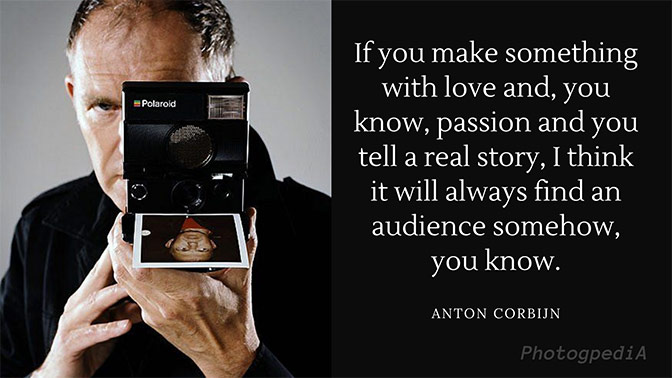
Corbijn on his Career
My start as a photographer was very simple and not based on any knowledge of it or wanting to create a masterpiece. I was obsessed with the music world and tried to find a way to be part of it. By borrowing my dad’s camera once, and taking it to a free daytime concert in our town, where I took a few shots, I became convinced that this was my calling. Only then did I start to have an interest in photography itself, but for a long time musicians were my only subjects.
For me N.M.E. was a very big thing. When I first came to the United Kingdom I started taking pictures for them and I became their main photographer for five years, and that’s really been the basis of everything I’ve been doing since.
In England, I’m already labeled a rock photographer, which is a little insulting, because I’m not a rock photographer at all.
[On being called the greatest Rock photographer] It narrows the way you judge a photograph – I really try to take photos that go beyond a person’s notoriety, and although I don’t always succeed, of course, it is what I aim for, and that way we can relate to a fellow human instead of a celebrity in the photograph. But if you already label the photo a certain way, it will be looked at a certain way. That is why I call myself a portrait photographer. In any case, I have, for the last thirty-plus years, done series on painters, actors, and others. The world in front of my camera is a lot broader than just music – that is more the past, I’d say.
I never really enjoyed getting a portfolio together then sending it out whereas putting up the website is quite an enjoyable experience. The net’s just a much faster and more modern way to distribute things and you have to embrace it.
… yes, I’ve become a little more professional – which I don’t really want to be but I can’t help it at some point.
Now I’m on my fifth period. I take a lot of photographs of painters like Lucian Freud and Richard Prince.” Why? “I’m a frustrated painter. You’re totally your own boss. You don’t have to travel.
I have never understood models. I find it really hard to find beauty in that or to discover beauty because the beauty was so obvious. I have never understood models. I find it really hard to find beauty in that or to discover beauty because the beauty was so obvious.
Everybody is a photographer now, so it’s very democratic in a sense. There’s an imagery overload, so it’s really hard to get any message across in photography these days. And anything can be manipulated, so the ideal of the camera being the truth teller is also gone. If I were young today, I’m not sure I would have chosen the same career path. I would probably have been a painter instead.
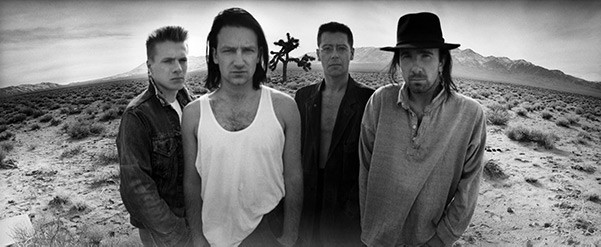
Music Video Quotes
Apart from photography and music videos, I also do graphic design.
There’s only one music video that had an emotional impact on me, and that’s ‘Hurt’ by Johnny Cash. That’s exceptional. There is no music video I can think of apart from that one that really reaches you inside.
My photography changed from being more documentary-like to arranging things more, and that came into being partly because I started doing music videos, and I incorporated some things from the music videos into my photography again, by arranging things more.
When I started doing music videos in the early 80’s, the videos would look like a photographer making a film because the camera never moved, but in the end, the videos became much more filmic. Simultaneously, the experience of making videos worked back into my photography. I started to use stylists and props, and I became much more actively involved in what happened in front of the camera.
The Transition to Filmmaking
I’m not educated as a filmmaker, so it’s quite a jump for me.
Directing film is the hardest thing I have ever done.
[on finaning his first film] Well I actually had to sell the house afterwards. I thought I was going to get the money back but it didn’t work out. I didn’t have an agent so I took the worst contract you could imagine. [Laughs] Quite a few people made money on it but I didn’t. So that was a lesson learned.
I wanted to make a film as an artist, and it’s going to have to find an audience, you know. I don’t know how big the audience will be.
For many years I wanted to do a film, but I never had the courage to clear my desk and say, ‘OK I’ll take a year off and do a film.’
I wanted to do a film for a while, but I never found a script that I felt I was going to be the right person for; because if you’ve never made a film, you’re not taught how to make a film, and you feel like you lack skills.
A lot of scripts that I was given I didn’t feel were right for me, because I didn’t feel anything for them – I didn’t feel like I was going to change in life and start directing.
I don’t want to knock photography, and I don’t feel that film is up there but photography isn’t. I think they’re next to each other really, you know. There’s an incredible strength to a still picture. Or there can be an incredible strength to a still picture that can outlive you. That can outlive a film.
I’m used to depending on my gut feeling in photography, and it’s a very low-key and quick way of working. With film-making you pretty much have to put aside a whole year of your life. That can be tough, but the great thing is that you may end up creating something that a lot of people will see.
My learning process in photography has stagnated, but with film-making, I have had to learn how to tell a story, and I’m sure this new knowledge will be beneficial for my photography in the end.
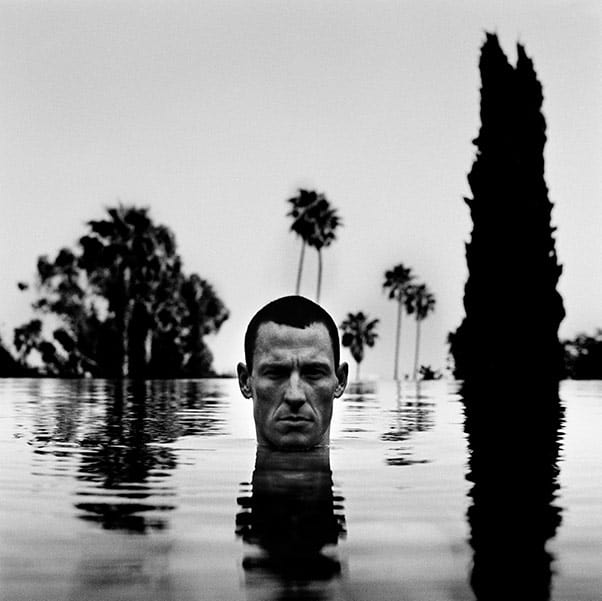
Corbijn on Photography Technique
I work using the Brian Eno school of thinking: limit your tools, focus on one thing and just make it work… You become very inventive with the restrictions you give yourself.
I’m a very, very basic photographer. The main strength of my pictures, I guess, is the mood and feel I get out of the people that I meet. But technically I don’t think I’m very advanced. That never interested me.
I don’t have lights, I don’t have assistants, I just go and meet somebody and take a photograph. That’s really basic, and that’s how I used to work when I was 17 or 18 in Holland.
I take my work seriously, but there is also a lot of fun involved in these pictures. People dress up or do silly things. It’s partly because I don’t arrive with a big team. I just go around with a camera and maybe I have my assistant with me, but that’s it. So it doesn’t feel like I’m invading much of their world or threatening them.
The blurriness and the grain that I use, for me, is close to life. I find things that are very static and very sharp and very well-lit and all that is not how I experience life.
My work is not quite perfect. Perhaps it still contains something of life. Because perfection often prevents the work from breathing.
I feel the imperfection is much closer to how life is than perfection.
A photo doesn’t need to be perfect to fascinate.
I don’t crop my images and I always shoot handheld. By doing that I build in a kind of imperfection and this helps to emphasize reality.
Analog Photography and Digital
Analog is more beautiful than digital, really, but we go for comfort.
I still work in analogue. There are some elements of digital photography that I don’t really like, such as the fact that you see the results immediately. I’ve always thought photography was a bit of an adventure so to come home with the film, develop it then look at the results has more of a sense of excitement. Digital changes your end results because if you think it’s not totally there then you are going to shoot it differently – you get the perfect image but that kills it for me as I like the imperfection.
I am always wondering why people throw away film and go for video when they want video to look like film. It’s like if you want your CD to sound like vinyl, why throw away the vinyl? With photography I like a lot of the post-process to be digital but I like to shoot on film. So it’s the best of both worlds for me.
For square format I use a Hasselblad and for 35mm I use a Leica – they’re both beautiful cameras.
Photoshop is a different matter as it’s post-production really. It’s like an extension of your darkroom so I have no problem with it – although you do see many examples of it being used badly. I’m trying to get to grips with it. With the whole digital thing I sometimes feel like everyone’s been driving cars and I’ve been taking the bus. Inevitably, I’ll have to change at some point as I feel that companies are investing more in digital technology now so you’re left with paper and film that are no longer as good. I took a beautiful picture of Nelson Mandela recently, which we worked on for a week in Photoshop until it ended up a perfect picture, but it had lost all the soul … so we printed the original.
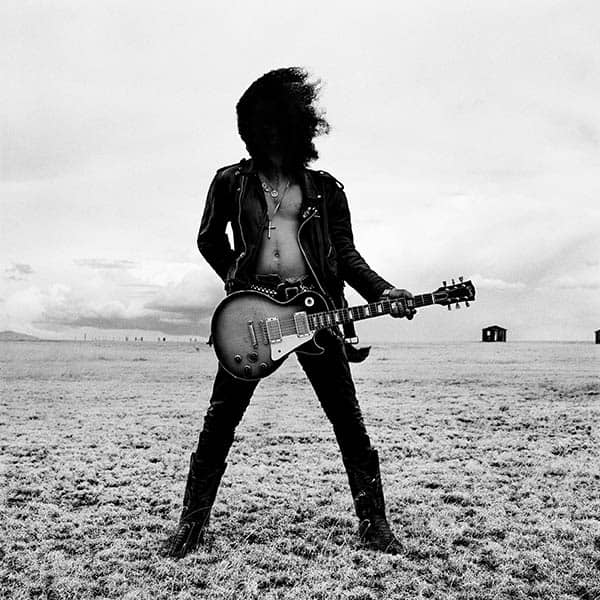
What’s your Favorite Anton Corbijn Quote?
Have a favorite quote from the list? Know any other Anton Corbijn quotes that would make a great addition to the list? Let us know in the comment section below.
Don’t forget to bookmark this page, or print it out, and refer to it next time you need some inspiration. Also, don’t forget to share it with others.
To learn more about Anton Corbijn’s photography head over to his official website or follow him on Instagram.
Looking for more words of wisdom from master photographers? Check out the quotes section of Photogpedia for more great photography quotes.
More Quote Articles:

